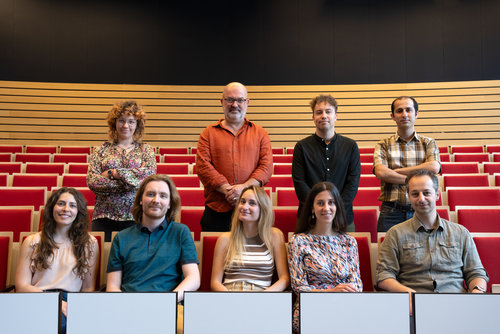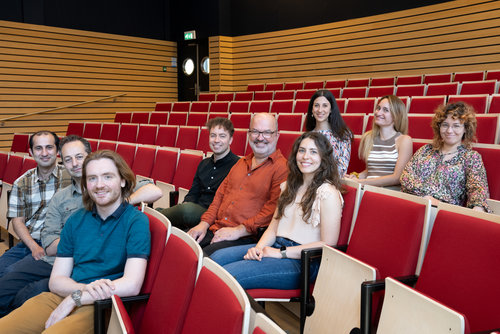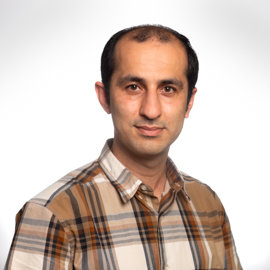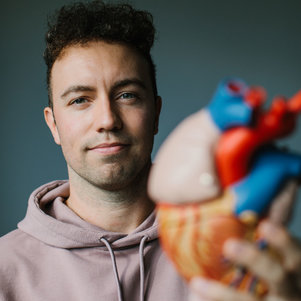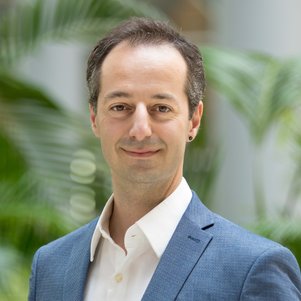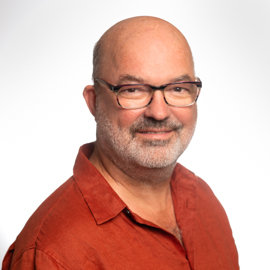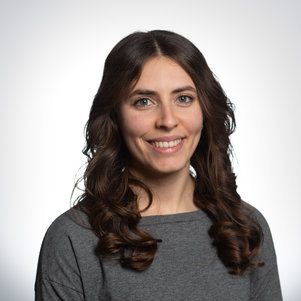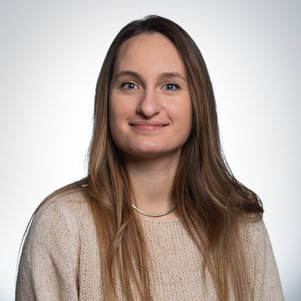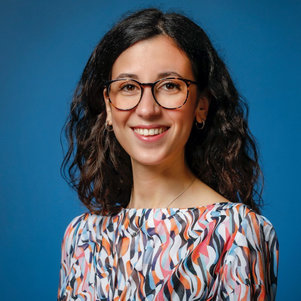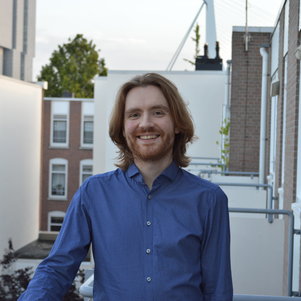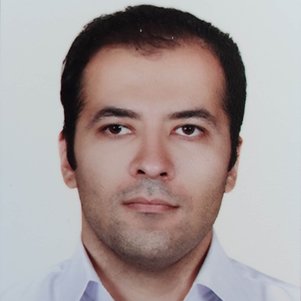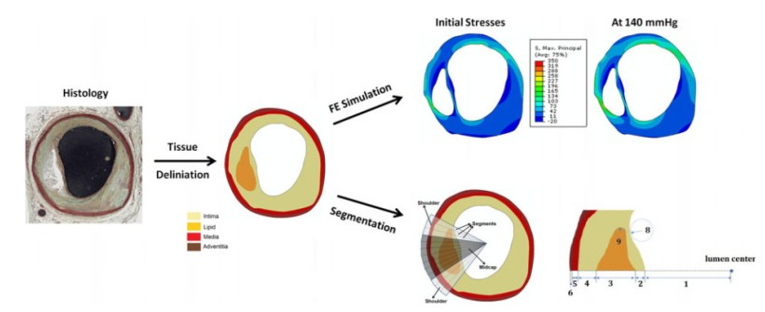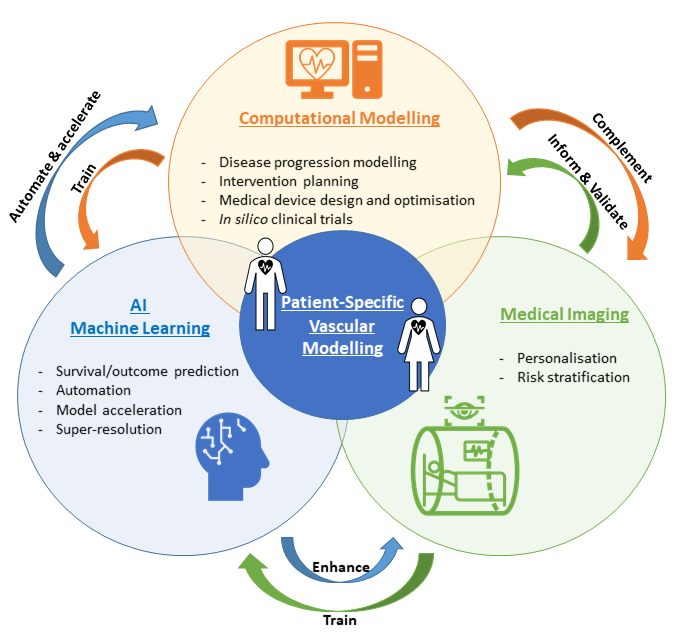The CardioVascular Biomechanics Group @ TU Delft is a research group in the BioMechanical Engineering Department at the Mechanical Engineering faculty, formed by five principal investigators that have research interests and expertise in the field of cardiovascular medicine and fluid&tissue biomechanics. The group’s research activities mainly focus on better understanding the structure and biomechanical functioning of the cardiovascular system and its components in health and disease to improve the prevention, diagnosis, and prognosis. The group utilizes both experimental testing approaches and computational modeling and closely collaborates with many clinical and non-clinical departments of Erasmus Medical Center.
Some highlights of the group’s research activities include:
- Cardiovascular tissue growth, adaptation, and failure in response to mechanical cues.
- Biomechanics-derived risk assessment of cardiovascular diseases and events, such as atherosclerosis, aortic aneurysm, heart failure, stroke, vascular dementia, and venous thromboembolism.
- Tissue-device interaction for optimal device design, such as prosthetic heart valves and thrombectomy devices.
- Digital twins of cardiovascular systems for in silico clinical trials and personalized treatment.
Team
Research topics
For improved diagnosis and prognosis of vascular diseases, we study vessel structure and mechanical behavior in health and disease.
Main research interests include:
- Biomechanics of atherosclerosis
- Mechanical characterization of arteries
- Microstructural characterization of atherosclerotic plaques
- Arterial calcification
We develop novel approaches to personalised haemodynamic assessment to address fundamental issues that currently limit the adoption of computational modelling in the clinical decision workflow. Our work combines state-of-the-art computational models with newly-emerging imaging and AI tools. Our ambition is to contribute to the achievement of a long-lasting improvement in the life expectancy and quality of life of patients affected by vascular disease.
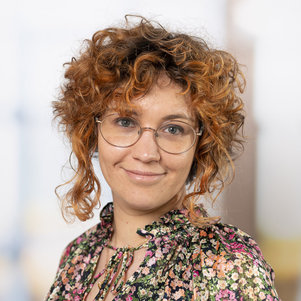
Selene Pirola (Assistant Professor)
We integrate multimodal experimental data, physics-based modeling and machine learning techniques to understand, explore, and predict the multiscale behavior of the human heart.
Our main research interests are:
- Cardiac mechanics
- Cardiac electrophysiology
- Growth and remodeling
- Data-driven modeling
- Uncertainty quantification
- Surrogate modeling
To validate the multiscale plaque models and to further study the interaction between devices and diseased arterial tissue, we recently developed an in vitro human disease model. This models, also labeled plaque-on-a-chip, aims at generating a mechanical and biological equivalent of a human atherosclerotic plaques. This high throughput platform is based on tissue-engineering concepts and developed and explored in close collaboration with the Erasmus MC and TU/e. Similar in vitro platforms are being used to study thrombus mechanics and thrombus device interaction.
The main research interests are:
- Microcalcification in atherosclerotic plaque rupture
- Collagen architecture and plaque mechanics
- New devices for thrombectomy
We combine experimental data, multiscale computational modeling, and clinical imaging to improve diagnosis, prognosis, and treatment of thromboembolic diseases such as stroke, deep vein thrombosis, and pulmonary embolism. We are passionate about advancing the field of in silico medicine and integration of computational modeling into the clinical practice.
Our main research interests are:
- Thrombus mechanics
- Multiscale modelling
- Acute ischemic stroke
- Deep vein thrombosis
- Digital twins and in silico medicine

